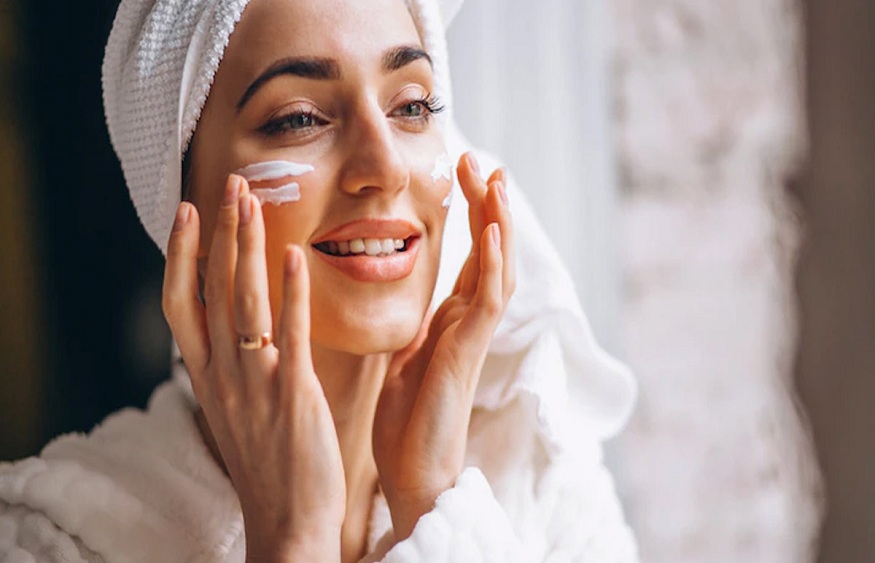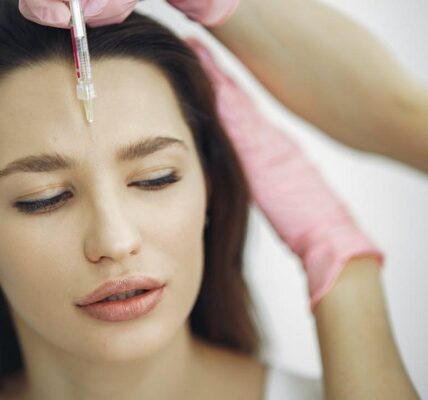If you pay attention to current trends in beauty and health, you know that skincare is undergoing a real revolution: you have access to more brands, products and tools to better ensure the health of your skin.
However, this trend should not be blamed solely on vanity – taking care of your skin is more than just wanting to maintain your youthful appearance. Since the skin is the body’s largest organ , it also plays a key role in regulating body temperature, manufacturing vitamin D, and providing first-line defense against harmful germs. It is therefore logical to want to take the greatest care of it.
However, sometimes your best intentions can get in the way. So, by believing in some common skincare myths, you may be causing (and even worsening) the skin problems you are trying to correct or prevent. Learn how to separate fact from fiction by learning five common misconceptions about skin care and using the tips below to make smart skin choices.
Myth # 1 : There is only one good skin care regimen.
Most generic cleansers available at the grocery store or drug store will remove dirt and oil from your skin, that’s true . Similarly, any moisturizer will provide your skin with some hydration. But to see truly positive results and make your skin look radiant, you need to give it exactly what it needs.
The first step in adopting a personalized skin care regimen is to understand your skin type. The pores of your skin are small, with dry and rough patches? You probably have dry skin. If you are prone to blackheads and need to pat your face dry every afternoon, your skin is in the oily category. You have combination skin if the T region of your face (forehead, nose and chin) is shiny in the middle of the day, while your cheeks are dry. If your skin is easily irritated, you might have sensitive skin. If you still don’t know which category you belong to, take the skin type quiz to find out .
Regardless of your skin type, you need to choose a skincare regimen that supports the health of your skin barrier in order to feel good about yourself. The protective outer layer of the skin contains a lipid or moisture barrier that shields you from the harshness of the environment and retains natural moisture. When your skin barrier is at its best, your skin is firm and plump and your complexion glows with freshness. Keeping your moisture barrier healthy is important to getting the results you want to see in the mirror.
Cleanser: Choose a gentle cleanser for morning and night. If you put makeup on, it’s best to take it off in a separate step before washing your face – this is the two-step cleansing process.
Conditioner: More than just an important step for combination or oily skin, applying conditioner can also help hydrate dry skin.
Myth # 2 : You only need facial skin care products.
Remember the skin barrier we discussed earlier? It covers and protects the skin all over the body. In other words, the rest of your skin needs as much care and attention as your face.
To pamper your delicate skin, especially in often-neglected areas of the body:
Although both UVA and UVB rays can damage the skin, SPF generally only measures the level of protection a product has against UVB rays – those responsible for the worst sunburns. If you use certain high SPF sunscreens, you might not blush or get sunburned, but that doesn’t mean your skin hasn’t been exposed to a high dose of dangerous UVA rays.
Even the FPS value can be misleading. Most people believe that an SPF 30 provides twice as long sun protection as an SPF 15 when in reality, an SPF 15 sunscreen blocks about 93% of UVB rays, while an SPF 30 product in blocks 97%.
For optimal sun protection, apply more sunscreen lotion than you think you will need and remember to reapply if you are out in the sun for more than two hours or have been in the sun for some time. water or training. Also take other measures to avoid the sun, such as staying in the shade, wearing loose, light-colored clothing and a hat, and limiting time in direct sunlight.
Myth #3: Restorative sleep only exists in fairy tales.
Sleeping until noon on Saturday won’t erase crow’s feet or expression lines. But according to a growing body of research, getting a good night’s sleep regularly will do wonders for your skin in the long run. Conversely, repeated bad nights of sleep can have extremely harmful effects on the skin.
A study of British women reported rather conclusive results. All of these women saw an increase in the number of wrinkles and dark circles and a dull complexion after five consecutive days with only six hours of sleep per night – compared to eight hours of sleep.
The immediate effects of a poor night’s sleep can show up in dark circles under puffy eyes, but the detrimental effects that sleep deprivation can have on the skin are likely to be far greater.
During sleep, the body goes into repair mode. It activates to eliminate old dead cells and replace them, in addition to purging the body of toxins. If you deprive yourself of a good night’s sleep, you shorten the body’s collagen production time by several hours, so your skin takes on a saggy and aged appearance before its time. Plus, your face isn’t getting the normal blood supply it needs to give you a healthy, glowing complexion.
Lack of sleep also leads to increased levels of cortisol – the stress hormone – which can cause pimples to appear. Other underlying effects of sleep deprivation include pH imbalance and moisture loss, which can wreak havoc on your complexion.





